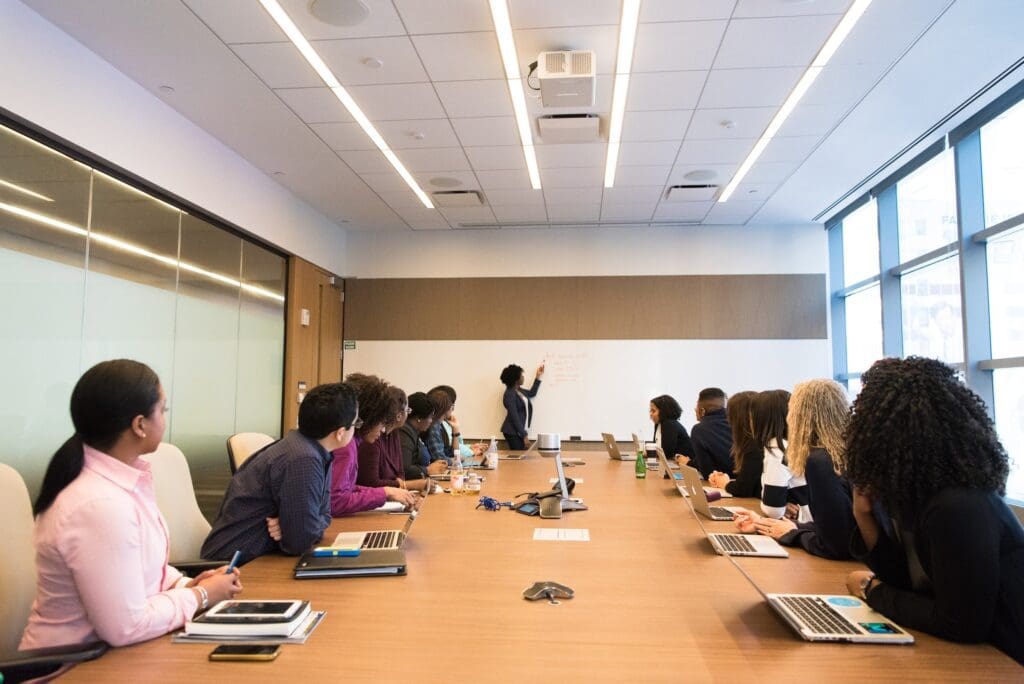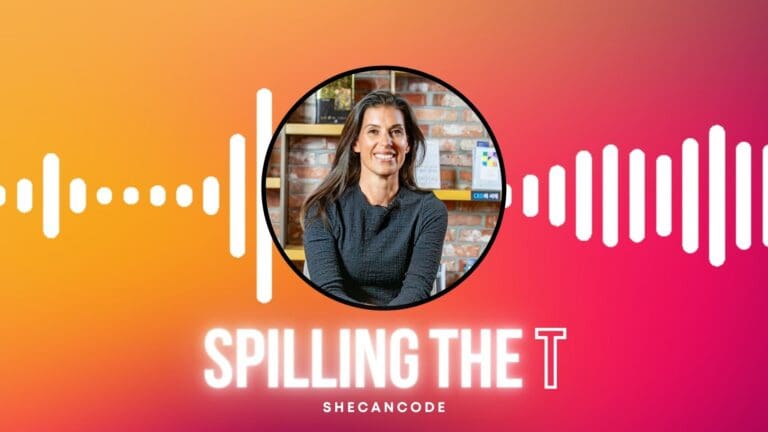How did you get into tech?
I always liked to break things and take things apart. You know, those little cashier toys you buy for kids? I undid the screws, worked out the mechanism, lost the screws, couldn’t put it back together. That was 7-year-old me. I got into coding when I was around 10/11-ish. I’m going to expose the complete nerd that I am with this comment. I played on a website called Neopets. There, you had virtual pets and each pet had a ‘page’. You could design that page with simple HTML and CSS to talk about your pet and their story. I ended up creating several accounts and each account had 4 pets, so 4 pages. All the pages started linking to each other. I didn’t know what a server or host was back then, but I essentially built an entire website.

What is it about tech that you love?
You can break down a big problem or challenge into lots of little steps, or a flow chart, and suddenly it’s not so big. Each element has a solution. It might take a while to build that solution, but you get there. And that high when you press a button and the whole thing works – I love that feeling!
What’s been your career highlight so far?
Building a brilliant team. I’m so grateful for the company culture, kindness and warmth that we show each other. Especially during Covid – it’s nice to see everyone taking care of each other and checking in.
What challenges have you faced as a Female Founder?
A lot of “business” tends to be directed at my co-founder (and husband), Oskar. More often than not, it’s small things, silly things, but you notice them. On phone calls people ask to be transferred to him, people asking to have meetings with him. As I say, they’re small things – nothing that will ruin my day. Oskar is brilliant and, when appropriate, will just say “Please speak to Thuria, she leads that team”. Nevertheless, I’m very fortunate in that I’ve never shied away from conflict. I’ll be that annoying person to correct someone. I even do it to my patients in A&E who think I’m a nurse! I think the worst thing we can do is keep silent about it.
On a more positive note – what tangible advice/guidance would you give to aspiring female founders?
Your best friend as a start-up founder will be Google. If you don’t know something, just learn it. There are so many resources out there. If you’re looking for something particular, add this to the end of your search query: “filetype:pdf” or “filetype:ppt”. Need a customer service training manual? You now have several examples to use to build your own! Want to understand X, Y, or Z? It’s all there. The hardest part is that block in the knowledge matrix where “you don’t know what you don’t know”. That comes from connecting with other people, other founders, and just having a conversation! It might seem like a 30 minute lunch date or an hour being social, but you’ll pick up a lot!
Can you recommend 5 women we should be shining a light on?

1. Rachel Watkyn, CEO at Tiny Box Company
2. Sarah Mintey, CEO at Developing Experts
3. Mala Mawkin @ Cellen
4. Mridula Pore, CEO at Peppy
5. Alice Au, Director at Fortunis Capital Fund.
On this last one – I don’t think we see enough women sitting at the “big boys” table in the world of VCs!
What about male allies and advocates for women?
1. You’ve already spoken to Dr. Oskar Wendowski! He’s brilliant. But I am completely biased.
2. Chris Ellis, an advisor on the Innovate UK Innovate 2 Succeed program, now working for St. Johns Innovation Centre
3. Finbarr Carter, the Student Enterprise Officer at the University of East Anglia
4. Callum Coombes, CEO of Safepoint
5. James Groves, Managing Director at Indigo Swan
What did you imagine your life as a Female Founder/Entrepreneur to be like, vs what it’s actually like?
That’s a really good question. I don’t think I actually thought that far ahead! When we started, I was doing a rotation in obstetrics and gynecology and I was coding every hour I was away from the hospital. I was completely caught up in the “doing”. Now, my day-to-day job as a female founder/entrepreneur focuses on one goal:
I’m there to make sure every person in my team is moving in the right direction towards the big picture. That’s my “purpose”.
I have a lot of meetings but I always welcome interruptions. I work every day, every evening, most weekends. I still also work as a doctor but it’s usually a weekend night shift in A&E. I know it’s a bit chaotic, but I love it!
Tools, resources, organisations that you’ve found valuable, as a founder?

– General: Google, obviously.
– Tools: I have dyslexia and hate reading. I use text to speech software in my day-to-day life. I recommend Pocket or Speechify.
– Resources: Github, Technation
– Organisations: Your local university. We have benefited greatly from the University of East Anglia and also from the Norwich University of the Arts.
What do you think companies should be doing to ensuring intersectional female representation?
I don’t really know the answer to this one. I can only really comment about what we do at e-Surgery. We remove all demographics from a candidate during our recruitment process. When we receive a CV, their name, their age, the year they graduated school etc. is removed. Their grades are converted into a standard measurement (given that young people now have numbers in their GCSE’s and we previously had letters). If that individual has a good CV, they’re asked to complete some pre-interview tasks. You only find out who it was when you’re on the call with them, by which point you already have an idea about who you want to hire. Within our team, we have an almost 50/50 split between men and women.
What’s the most exciting thing about tech right now in your mind?
So many things to choose from! I’m actually very excited about the possibilities of Elon Musk’s neural link. The applications are endless. Think about the lives you could transform if it was used as a medical device! Then you have the exciting (and scary) possibility of augmenting healthy humans to enhance them. It’s the stuff of Sci-Fi movies!
3 lessons you’ve learnt throughout your career?
1. Ask questions, even if they seem stupid. You won’t learn otherwise.
2. Ask for help – you don’t have to do it all by yourself.
3. I knew this one before, but I do think it’s important to mention. Don’t ask someone to do a job you wouldn’t do.

What would you tell your younger, more junior self – with hindsight?
You’re going to do great! Keep at it. Keep learning.
If you weren’t in tech, what would you be doing instead – and why?
I guess I’d spend more time being a doctor. I imagine I’ll still end up in some form of business within the health sector. I’m just wired that way.
Do you find that non-technical skills are ever helpful in your role? If so, how?
Absolutely. I rely so much on my people skills and EQ. It’s a necessity.
What advice do you have for women in tech, on tackling imposter syndrome?
I’ll let you know when I’ve tackled my own imposter syndrome! It’s the typical Dunning-Kruger curve. I now can see how much more there is to learn so my imposter syndrome is even bigger than it was before, even though I know more than I did!
What’s the best piece of career advice you’ve ever received?
Be patient enough to learn, but inpatient enough to take risks.








